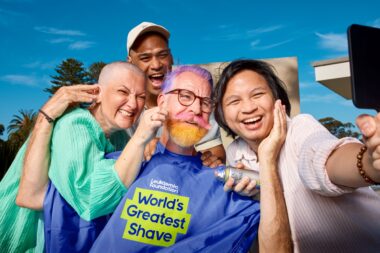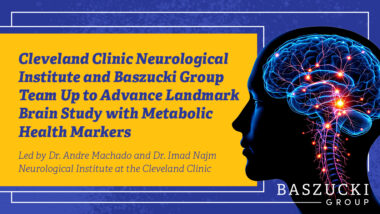An unlikely partnership is bringing leprosy into the spotlight at the Sydney Film Festival, which opened last night (5 June 2024).
Leprosy Mission Australia, as an advertising sponsor of the festival, today launched its new ‘Still a Thing’ campaign featuring Australian actor David Wenham.
Wenham’s partnership with Leprosy Mission Australia was born out of his experience playing Father Damien in the 1999 movie Molokai when, in his words, he “learned of the true suffering caused by leprosy.”
The campaign concept was born from the everyday experience of Leprosy Mission Australia CEO Dr Greg Clarke and his team, who frequently get asked: “Is leprosy still a thing?”
“For most Australians, the closest experience they will have with leprosy is through novels, television shows and movies depicting events set hundreds of years ago,” Dr Clarke said.
“It is an ancient disease so it’s easy to think it’s something we left in the past. But sadly each day, 50 children around the world contract leprosy, often from the poorest, most underprivileged communities.”
“Leprosy is still a thing,” Dr Clarke said.
“Leprosy continues to steal the lives of children around the world. We have the cure, we can spot it and stop it, but we urgently need the community’s help to defeat leprosy.”
The Still a Thing campaign will feature on screens and billboards throughout the festival as crowds are drawn to see 200+ films screened at 12 venues over 12 days from 5-16 June 2024.
The campaign’s television and radio commercials starring Wenham will also be supported by a dedicated website: www.stillathing.org
Wenham was confronted by the reality that leprosy is still a thing while preparing for and filming his role as Belgian priest Father Damien, who volunteered to work with leprosy patients sent away to the Hawaiian island of Molokai in the 19thcentury. The actor spent five months living on Molokai with a community of people impacted by leprosy, some of whom went on to appear in the movie.
Twenty-five years later, the people of Molokai and others living with leprosy are still on Wenham’s mind, inspiring him to become a spokesperson for the work Leprosy Mission Australia is doing to end the disease.
“I defy anybody to meet people living with leprosy and not be affected,” Wenham said. “The people of Molokai had a profound effect on me.”
“Leprosy is still a thing, but we’re closer than ever to ending leprosy transmission.”
“Diagnosis and treatment are critical to restoring lives and communities. Within 48 hours of starting treatment, a person with leprosy is no longer contagious and with early diagnosis and treatment, they are also less likely to experience permanent nerve damage, disfigurement and disability.”
“We can all help beat leprosy, to end the suffering,” Wenham said.
The Still a Thing campaign comes as Leprosy Mission celebrates its 150th anniversary and continues its mission to make a world without leprosy a reality.
People can read more about the campaign or make a donation at www.stillathing.org and learn more about Leprosy Mission’s 150th anniversary and the jubilee gift projects at www.leprosymission.org.au/150.
[ENDS]
Background:
- Leprosy Mission Australia CEO Dr Greg Clarke is available for interviews in relation to the Still a Thing campaign and 150 years of Leprosy Mission.
- Further information on the campaign: www.stillathing.org
- Hashtags: #StillAThing #BeatLeprosy #LeprosyStillExists #EndStigma #ActNow #ZeroDiscrimination
For further information please contact:
Dr Greg Clarke (CEO, Leprosy Mission Australia)
P: 0480 547 642 or 0419 995 875 or E: [email protected]
Key Facts:
Every 2 minutes someone is diagnosed with leprosy.
Leprosy Mission is marking 150 years of work towards eradicating the 4000 year old disease.
A new campaign is reminding people it is 'still a thing' but we can end it.
About us:
The Leprosy Mission Australia is part of a worldwide partnership of organisations working towards the end of leprosy. It supports international aid, medical research, advocacy and community development in countries around the world where leprosy is still prevalent, especially India, Indonesia, TImor Leste, Nepal and Nigeria.
Contact details:
Greg Clarke (CEO)
0480 547642
0419 995875


